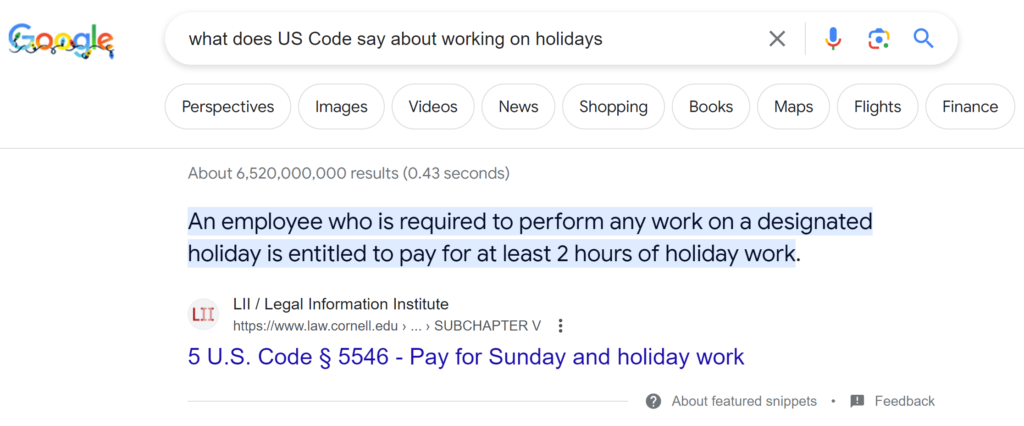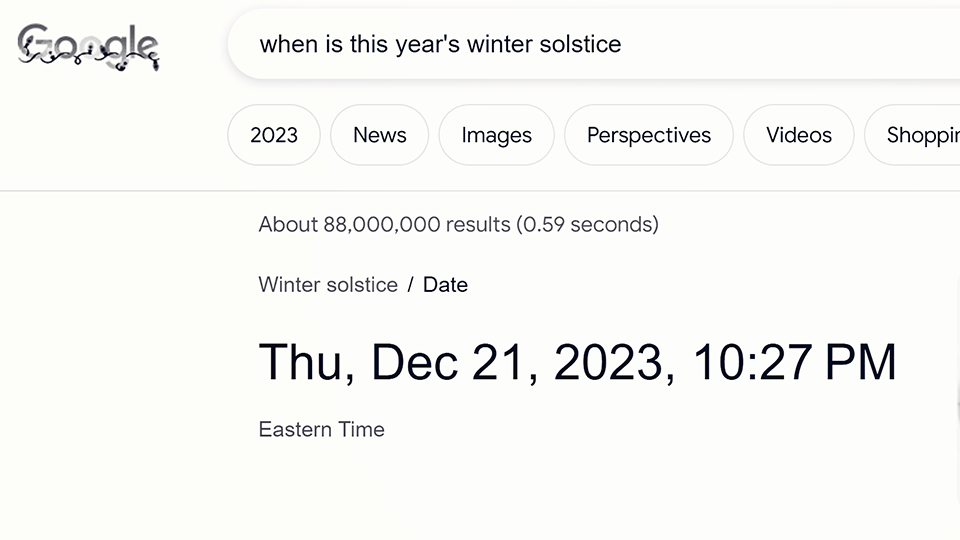What does the Winter Solstice have to do with Free Legal Information?
Today is the winter solstice. We know that because we asked Google.
As you can see, Google didn’t return a list of web pages from which we could extract an answer, but the actual answer itself: December 21, 2023. It was then and there that I knew what I wanted to say in this blog post.
We’re all accustomed to these Featured Snippets (as Google now calls them), but when they started almost a decade ago, they were a really big deal. On one hand, it was neat to see Google use our website to, for example, answer a holiday-themed legal question:

On the other hand, getting the answer straight from Google wasn’t obviously a good thing for projects like ours. If searchers didn’t click through on that link, then we wouldn’t have an ever-growing amount of traffic to demonstrate our usefulness. We also couldn’t expect the same level of advertising revenues and user donations that made our work possible if folks stopped needing to visit our website to find the answer they were looking for. It was, quite literally, an existential crisis in the making. Despite these concerns, our traffic continued to grow steadily over the last decade to a point where continuing to use it as a leading indicator of our impacts now seems futile (a topic we touched on in another recent post).
We’ve also written recently about the fascinating rift that’s developing in the global online Free Law world all these years later between those who welcome the bots/scrapers/crawlers that harvest content like ours to power AI systems and other future technologies and those who are fighting to keep their websites, in essence, read only. In short, what’s coming down the road makes Google’s Featured Snippets seem utterly quaint, and existential crises abound for all sorts of knowledge workers.
Both that Featured Snippets example and this recital of the issues they implicate are admittedly facile; but, we wanted to reiterate LII’s commitment that we will continue to develop, test, refine, implement, and share innovative techniques for making legal information more findable and comprehensible for the public–whether you ultimately end up on our website or not.



